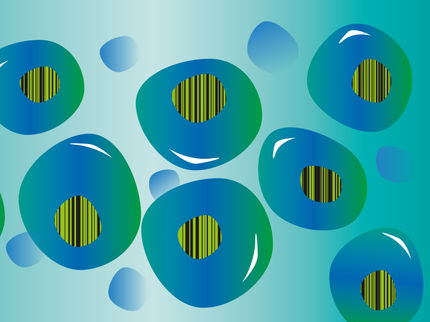Faulty immune receptor could be reason why many face HIV complications
For HIV patients, treatments that control the infection have come a long way. But many still struggle with a host of other disease-related complications such as neurocognitive disorders, cardiovascular issues, diabetes and chronic inflammation.
Why these complications occur isn't exactly known, but many indicators point to an overactive immune system, something HIV patients are all too familiar with.
Michigan State University scientists have discovered SLAMF7, an immune receptor, has the ability to tone down the body's immune response when activated on certain white blood cells, called "monocytes." The finding was made after studying both healthy and HIV-infected patients. Yet, for certain HIV patients who experience a myriad of health issues, the researchers found that these patients' receptors don't work properly.
They also discovered that SLAMF7 made the monocytes more resistant to HIV by increasing the level of a protein, called "CCL3L1," which is known to make it harder for the HIV virus to get inside cells.
"SLAMF7 can act like a seesaw and keep the balance of the immune system in check," said Patrick O'Connell, a fourth-year doctoral student who led the project with Yasser Aldhamen, an assistant professor of microbiology and molecular genetics in the College of Osteopathic Medicine. "When receptors need to turn immune cells on because of an infection, they bind to the cells and work with fellow receptors to activate the immune system. When signs of infection or inflammation go away, the receptors switch gears and turn off the immune response."
O'Connell explained that for HIV patients, their inability to fight infections stems from chronic immune activation, which exhausts certain cells, such as T-cells, that are needed to help the body ward off diseases.
Patients with malfunctioning receptors can't shut off their immune systems, which can put the body in a chronic proinflammatory state. This constant activation can negatively affect other organs and tissues.
"If you have too much activation, you see autoimmune disorders where the body attacks its own tissues and if there's not enough activation, you see cases where the body can't fight off infections," O'Connell said. "HIV patients are different because they can experience both, which can lead to all sorts of health issues and make treatment difficult."
O'Connell and the team tested the blood of study participants, isolated their white blood cells and stimulated them with interferon alpha, a protein that boosts the immune system's response to infections, sometimes to an unhealthy level. They then investigated how the SLAMF7 receptor responded, and found that it was unresponsive in certain HIV patients who struggled more with complications and often times had a worse prognosis.
Understanding the molecular mechanism of the SLAMF7 receptor and how it works could lead to new drug treatments that target immune activation. This could make SLAMF7 a functioning team player again in the immune system - something Aldhamen and O'Connell are looking at in their next phase of research.
"There's always a need to get new drugs that can target different mechanisms related to a disease," O'Connell said. "Most HIV drugs target the virus itself. Our work comes at it from a different angle - to potentially modify the immune system so we can fight the virus. Finding a drug that does this is our ultimate goal."
Original publication
Patrick O’Connell, Yuliya Pepelyayeva, Maja K. Blake, Sean Hyslop, Robert B. Crawford, Michael D. Rizzo, Cristiane Pereira-Hicks, Sarah Godbehere, Linda Dale, Peter Gulick, Norbert E. Kaminski, Andrea Amalfitano and Yasser A. Aldhamen; "SLAMF7 Is a Critical Negative Regulator of IFN-α–Mediated CXCL10 Production in Chronic HIV Infection"; J Immunol; 2019
Most read news
Original publication
Patrick O’Connell, Yuliya Pepelyayeva, Maja K. Blake, Sean Hyslop, Robert B. Crawford, Michael D. Rizzo, Cristiane Pereira-Hicks, Sarah Godbehere, Linda Dale, Peter Gulick, Norbert E. Kaminski, Andrea Amalfitano and Yasser A. Aldhamen; "SLAMF7 Is a Critical Negative Regulator of IFN-α–Mediated CXCL10 Production in Chronic HIV Infection"; J Immunol; 2019
Other news from the department science

Get the analytics and lab tech industry in your inbox
By submitting this form you agree that LUMITOS AG will send you the newsletter(s) selected above by email. Your data will not be passed on to third parties. Your data will be stored and processed in accordance with our data protection regulations. LUMITOS may contact you by email for the purpose of advertising or market and opinion surveys. You can revoke your consent at any time without giving reasons to LUMITOS AG, Ernst-Augustin-Str. 2, 12489 Berlin, Germany or by e-mail at revoke@lumitos.com with effect for the future. In addition, each email contains a link to unsubscribe from the corresponding newsletter.

























































